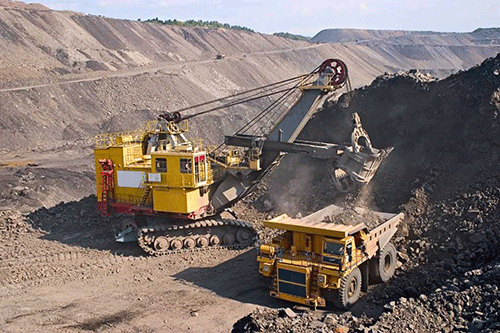Southern Africa Resource Watch (SARW), the Johannesburg-based advocacy and research organisation, has hit back at the Chamber of Mines of Namibia in a scathing statement that raises alarm to potential illegal and unethical practices in Namibia’s lucrative mining industry.
SARW yesterday questioned the motives of a Chamber of Mines media release that labelled a recent report titled ‘The Mineral Sector of Namibia: A Nuanced Overview of Selected key Aspects’, as inaccurate.
The chamber released their media statement on 18 March this year, taking issue with coverage and allegations relating to the existence of illicit financial flows in the mining sector; the allegation of tax policy inefficiencies in Namibia; high corporate tax rates; low royalties and export levies; and the windfall tax.
The SARW report argued that “there is a high risk of transfer pricing manipulation by mining companies in the country; price manipulation is widespread in the mineral sector in Namibia, and is carried out in many different ways; and mining companies inflate their investment expenditure in order to offset profits and avoid paying corporate taxes.”
“This tax avoidance practice is rampant throughout the entire extractive sector,” the SARW report asserted.
SARW, which monitors corporate and state conduct in the extraction and beneficiation of natural resources in southern Africa, also found that for the years 2017, 2018 and 2019, over 90% of the total corporate tax paid by the entire Namibian mining sector was paid by one company, Namdeb Holdings.
This is a trend they say can be traced back six years.
“Our study found practices by some of the mining companies that resulted in a reduction of their tax liabilities, and reduction of such liability when it becomes due in future. The study found illicit flows that are carried out through legal but unethical practices that seek to avoid paying corporation tax and reduce the corporation tax liability. These cases include the sale of the Trekkopje uranium project of Paladin Energy, the overstated price of a grader that contributed to a N$1 billion tax credit, and a nuclear fuel company that produces yellowcake,” SARW stated.
They continued that a key finding of the study is that technical incompetence on the part of the regulator is aiding illicit financial flows.
“From our study, the mining commissioner’s department does not use the project feasibility reports at its disposal to assist in its policing role. It is up to the Namibian government to strengthen the capacity of its institutions,” the watchdog warned, adding that the various irregular activities undertaken by a number of companies expose the regulator’s serious technical incompetencies.
“If these examples in the report are not enough to persuade the chamber that something is wrong, then nothing will. This raises serious questions as to which side the chamber is on: the people of Namibia, or the interests of foreign companies... The above examples show clearly the high risk of transfer pricing manipulation by mining companies in the country.
Does the chamber consider this insufficient evidence of a phenomenon widespread in the mineral sector in Namibia, especially considering that such practices are carried out subtly and are very difficult to investigate, and that it is difficult to quantify the amounts lost through the practice?” SARW
asked.
Furthermore, SARW said it does not consider its observations on illegal financial flows or tax evasion to be libelous. Instead, it strongly believes that these are good grounds for a constructive dialogue that includes all the stakeholders.
“The issues raised in the SARW report require an ethical approach, and the chamber must show a human face when dealing with these issues, and not only push for companies’ bottom line. We strongly believe that the issues raised in the SARW report are of public interest, not libelous, and require critical engagement and reflection by all stakeholders: the Chamber, the regulating bodies, the government, civil society organisations and mining communities,” SARW urged.
Meanwhile, the chamber specifically took issue with SARW’s statement that price manipulation is widespread in Namibia’s mineral sector, and is carried out in many different ways. SARW’s investigation found that some mining companies inflate their investment expenditure to offset profits and avoid paying corporate taxes.
“As the authors investigated this suspicion, evidence was obtained to be able to make the statement above. This evidence is given in the report,” SARW maintained.
SARW concluded that “Namibia, in real terms, is not an upper middle-income country, as it has been classified using outdated indices. The country has one of the worst wealth distributions in the world. If you remove the top 10% of the richest people, Namibia falls back among its peers, who are lower-income countries. It is in fact a poor country. The government needs to mobilise all financial resources due to it for its poverty-reducing activities.”


